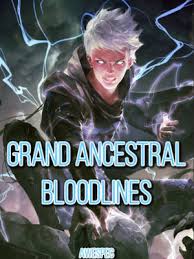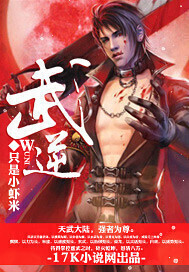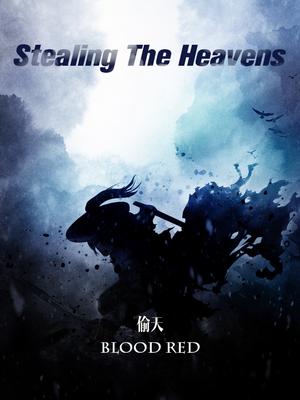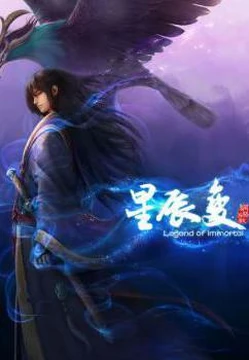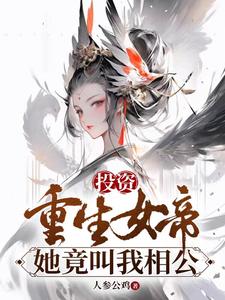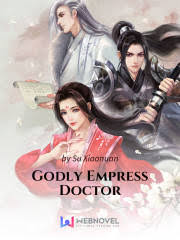The Story in 3 Sentences
Zhang Yan begins his journey as a transmigrator from a post-apocalyptic world, reborn into the body of a youth within a cultivation sect where he must navigate complex political intrigues and sect hierarchies while concealing his otherworldly knowledge .
His path dramatically shifts when he demonstrates exceptional talent for deciphering ancient Eclipse texts, earning him both powerful allies and dangerous enemies within the sect, while simultaneously uncovering deeper mysteries about the cultivation world’s fundamental principles .
The narrative evolves from personal survival into a grand struggle against entrenched powers and celestial mysteries as Zhang Yan vows to tread his own path toward immortality, challenging the established order and confronting the ultimate truths of the Great Dao .
Why It Stands Out
1. The Intellectual Cultivator Paradigm
This novel distinguishes itself through its protagonist’s exceptional reliance on intellectual prowess rather than brute force or plot armor. Zhang Yan consistently employs clever schemes, strategic thinking, and profound comprehension of cultivation mysteries to overcome challenges, creating a refreshing departure from typical xianxia protagonists who rely on combat luck or inherited power . The cultivation system itself revolves around deciphering coded texts and understanding profound philosophical concepts, making advancement a matter of intellectual achievement rather than mere energy accumulation, which appeals to readers seeking more cerebral cultivation narratives .
2. Political Intrigue as Cultivation Foundation
Unlike most xianxia novels that treat sect politics as background noise, Great Dao Commander integrates complex political maneuvering into the very fabric of its cultivation system. The intricate power dynamics between different temple factions, family interests, and individual ambitions are not just setting details but active components of the progression system, where political acumen directly translates to cultivation advancement and resource acquisition . This creates a rich tapestry of interlocking motivations and conflicts that feel authentically complex rather than simplistic good-versus-evil dynamics, reflecting the actual cutthroat nature of cultivation societies .
3. Philosophical Depth and Cosmic Struggle
The novel explores profound philosophical questions about the nature of power, destiny, and the Great Dao itself through its unique cultivation system based on interpreting ancient texts and heavenly secrets. This approach transforms the typical cultivation journey into a more intellectual and metaphysical pursuit, where comprehension of cosmic truths becomes as important as energy accumulation . The narrative consistently maintains a serious tone about the philosophical implications of cultivation, treating the path to immortality as a genuine philosophical struggle rather than just a power fantasy, which elevates it above many genre counterparts .
Characters That Leave a Mark
There’s Shi Shoujing – The Profound Virtue Temple’s Grandmaster who serves as a complex mentor figure to Zhang Yan, demonstrating that even the highest-level cultivators must navigate intricate political landscapes and make difficult decisions that balance personal interests with sect stability . His deployment of the ‘Long Life Duster’ token to protect Zhang Yan illustrates the delicate power games played at the highest levels of the cultivation world, showing how even grandmasters operate within constraints and hierarchies .
You’ll meet Lin Yuan, who represents the entrenched sect interests that view Zhang Yan as a threat to their power structure. His constant scheming and political maneuvering against the protagonist exemplify the novel’s theme that cultivation advancement is as much about navigating social complexities as it is about personal power growth .
And Zhen Shouzhong? They’re the Ethics Academic Temple’s Grandmaster who questions Zhang Yan’s promotion, embodying the conservative forces within the cultivation world that resist change and talent that doesn’t conform to traditional power structures and family backgrounds .
The Flaws Fans Debate
Some readers criticize the novel’s occasionally slow pacing, particularly in early chapters where the political setup and world-building take precedence over action and cultivation progression, which can challenge readers accustomed to more immediate gratification in xianxia narratives .
The complex political maneuvering and emphasis on intellectual comprehension over combat sometimes leads to stretches where the action feels too cerebral and lacking in physical confrontation, which may disappoint readers seeking more traditional cultivation battles and power displays .
Several reviewers note that the translation quality varies throughout the novel, with some chapters suffering from awkward phrasing and unclear cultural references that can occasionally hinder comprehension of the more subtle political and philosophical nuances .
Must-Experience Arcs
Ch. 1–50: The Eclipse Text Revelation – This foundational arc establishes Zhang Yan’s unique talent for deciphering ancient cultivation texts and his initial navigation of sect politics, setting up the intellectual tone that defines the entire novel while introducing the complex power dynamics he must master .
Ch. 80–150: The Grandmaster’s Test – A crucial progression where Zhang Yan faces the ‘Impurity Purification Cauldron’ trial administered by the sect leadership, demonstrating his worthiness for advancement while revealing deeper layers of the sect’s political structure and the true nature of the cultivation world’s power mechanics .
Ch. 300–400: The Heavenly Secrets Unraveling – This later arc expands the scope beyond sect politics to explore the cosmic mysteries of the Great Dao itself, as Zhang Yan’s comprehension of the eclipse texts leads him to uncover profound truths about the nature of cultivation and the celestial mechanics governing their world .
Killer Quotes
“The path to immortality was merely walking on the dark path to plunder various fortunes and robbing the threads of the profound heavenly secrets” .
“Treading the path of the Great Dao was lonely and filled only with one word ‘struggles’” .
“For every step treading throughout the realm, was full of strives and struggles” .
Cultural Impact
The novel has developed a dedicated following among xianxia readers who appreciate its more intellectual approach to cultivation, often being recommended in discussions seeking stories with intelligent protagonists and complex political elements rather than pure power fantasy .
It has sparked ongoing debates within reader communities about the balance between political intrigue and traditional cultivation action, with some praising the sophisticated approach while others find the reduced combat focus less engaging, creating divided but passionate discussions about innovative storytelling in the genre .
The manhua adaptation released on AC.QQ and BiliBili Manhua platforms has brought the story to a wider audience, though the complex political elements have proven challenging to adapt visually, leading to interesting comparisons between the original novel’s depth and the adaptation’s simplified approach .
Final Verdict
Start Here If You Want:
A xianxia novel that prioritizes intellectual prowess and political strategy over brute force and combat luck, featuring a protagonist who wins through clever schemes and profound comprehension rather than raw power or authorial favoritism.
A cultivation system that feels genuinely mystical and philosophical, where advancement comes from deciphering ancient texts and understanding cosmic secrets rather than simply accumulating energy or finding powerful artifacts through coincidence.
A richly developed sect politics environment that reflects the complex interplays of power, influence, and ambition that would realistically exist in a cultivation society, with conflicts driven by nuanced motivations rather than simplistic evil versus good dynamics.
Study If You Love:
Narratives that explore the philosophical underpinnings of cultivation itself, treating the path to immortality as a genuine metaphysical journey with profound philosophical implications rather than just a vehicle for power fantasy fulfillment.
Complex political maneuvering and strategic thinking where characters actually behave like intelligent beings with coherent motivations and plans, rather than serving as simplistic obstacles for the protagonist to overcome through brute force.
World-building that extends beyond combat capabilities and cultivation stages to include intricate social structures, economic considerations, and political systems that make the cultivation world feel like a functioning society with its own internal logic and complexities.
Avoid If You Prefer:
Fast-paced action with frequent combat scenes and immediate power progression, as this novel emphasizes political intrigue and intellectual comprehension over physical confrontations and may feel slow to readers seeking constant action.
Simple power fantasy narratives where the protagonist dominates through overwhelming combat strength or convenient plot devices, as Zhang Yan’s victories come through careful planning and intellectual effort rather than brute force or luck.
Light-hearted or comedic takes on the cultivation genre, as the novel maintains a serious tone throughout its exploration of political maneuvering and philosophical depth, with little room for humor or casual storytelling.
